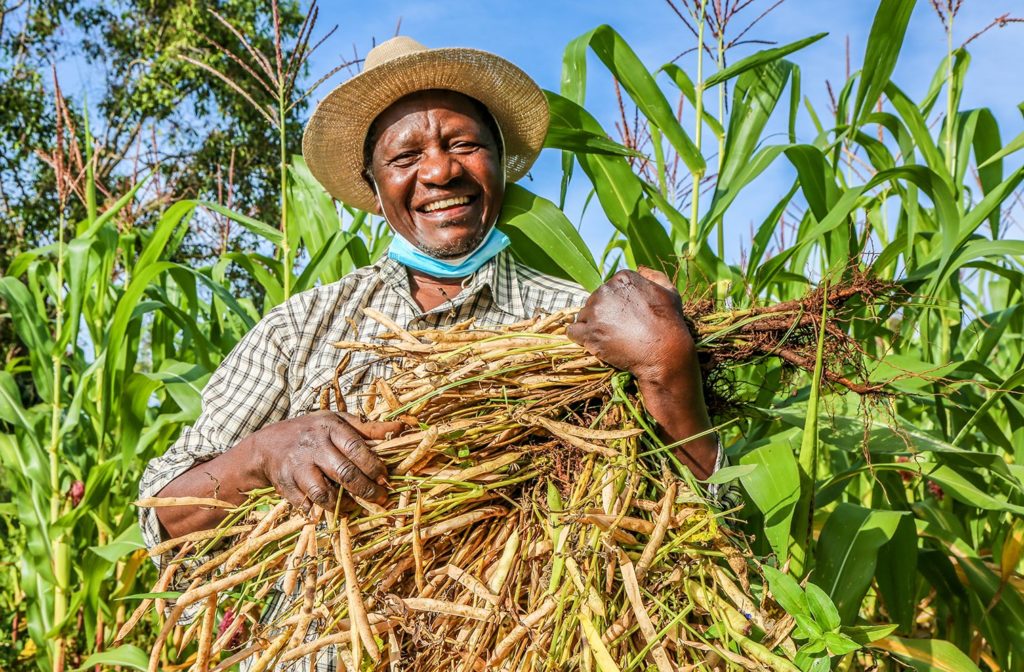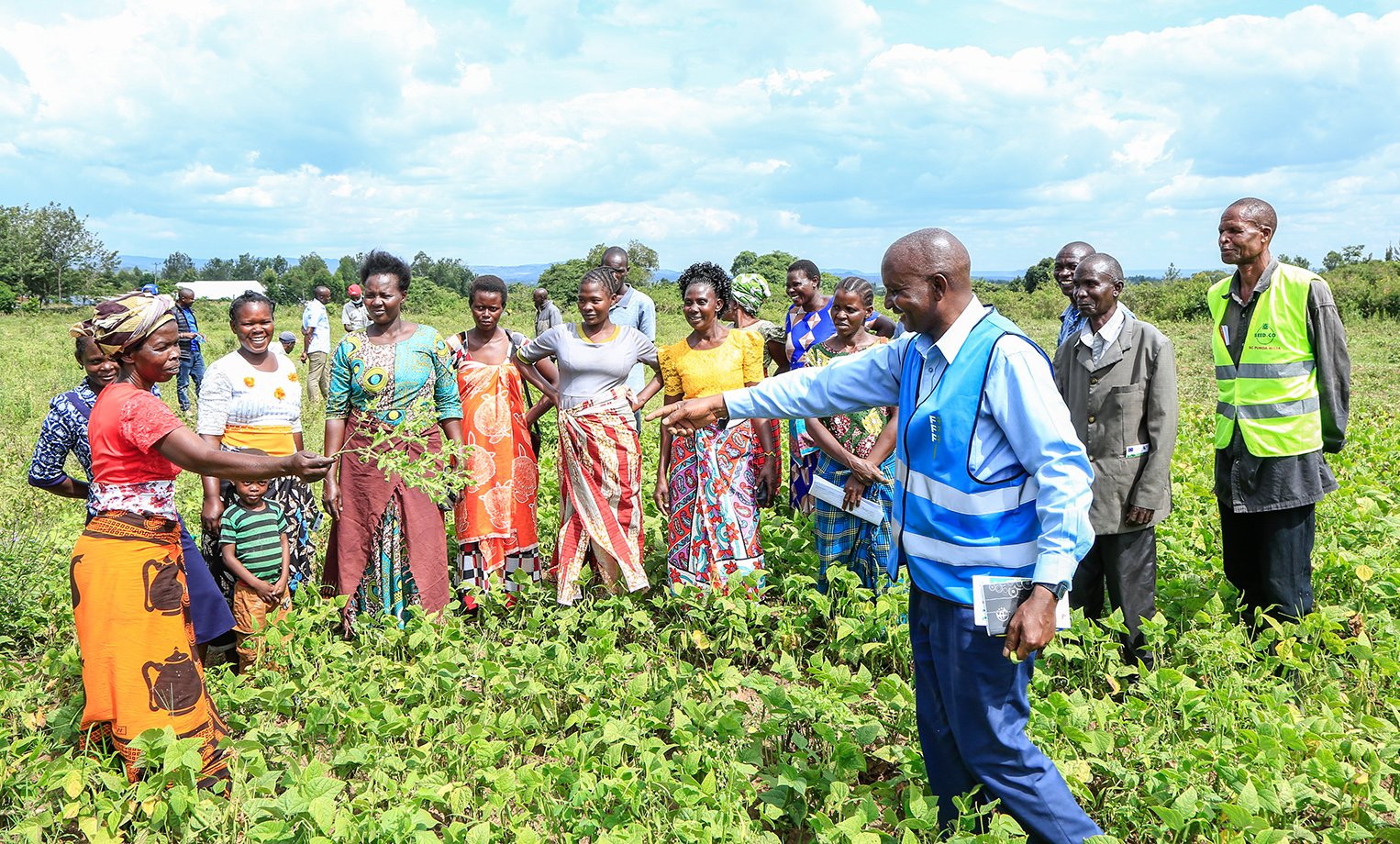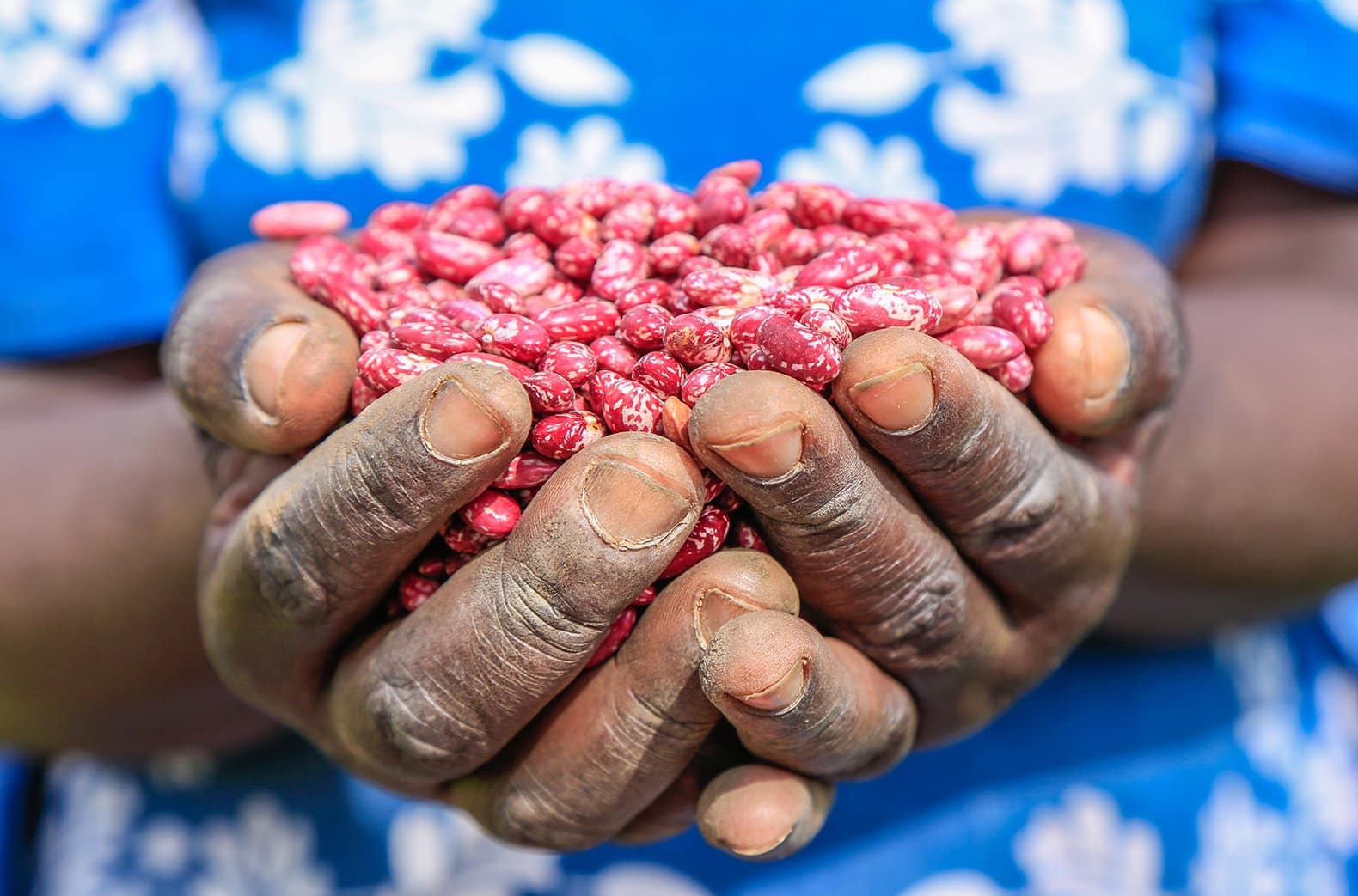Say no to tobacco farming

Farmer Reginald Omulo walks between rows of healthy maize and beans, stopping to admire what he has planted.
Like many farmers in Uriri Sub-county, Migori County, Kenya, Omulo used to cultivate tobacco. But no longer.
He is now passionate about his family’s shift to grow alternative crops, confident that their hard work will be the foundation for a brighter future for themselves and their community.
«I regret planting tobacco for so many years! I wish I knew of other alternatives earlier,» says Omulo
Data from the World Health Organization (WHO) indicate that an estimated 36 000 farmers still produce tobacco leaf, primarily in the Nyanza and western provinces, with some farming in the central and eastern provinces.
But Omulo says many farmers in Uriri Sub-county are now angry because of the poor prices the tobacco companies are paying them.
And it’s bad for the health: a tobacco farmer who plants, cultivates and harvests tobacco may absorb as much nicotine as found in 50 cigarettes in a single day.
It’s also destroying the environment. Tobacco farming leads to depletion of water sources, large-scale deforestation, soil erosion and contamination of the air and water systems.
And it means there’s less land to grow crops to feed people.
«You have to work hard on the tobacco farms, and you do not know how much you are going to gain because the prices are set by the tobacco companies. This is done on purpose so they can gain more! They also set up so many grades on the crop that it makes it impossible for you as the grower to estimate the yields,» Omulo said. Farming the crop is labour intensive. Many tobacco farming families in this region have children who continue to miss classes and eventually drop out of school.
WHO, the Food and Agriculture Organization (FAO) and the World Food Programme (WFP) are now collaborating on an alternative livelihood project, working with farmers like Omulo in Migori County to use the collective purchasing system within the United Nations and create an enabling and supportive crop production and marketing ecosystem that incentivize farmers to move away from tobacco farming.
«Over the last few months, we have seen long-time tobacco farmers planting alternative crops like high-iron beans in fields where tobacco once grew – a tremendous achievement in the world of tobacco control. The former tobacco farmers report better health, education gains for their children and increased wages.»
- Dr Vinayak M Prasad, Unit Head, No Tobacco (TFI) at WHO
According to the Ministry of Agriculture, 330 farmers out of 400 targeted in Migori County have now transitioned successfully to high-iron beans farming.
Many girls in this region previously opted for early marriages as a result of poverty, but «now there are more children in high schools as they can afford to continue with their education,» says Omulo.


















